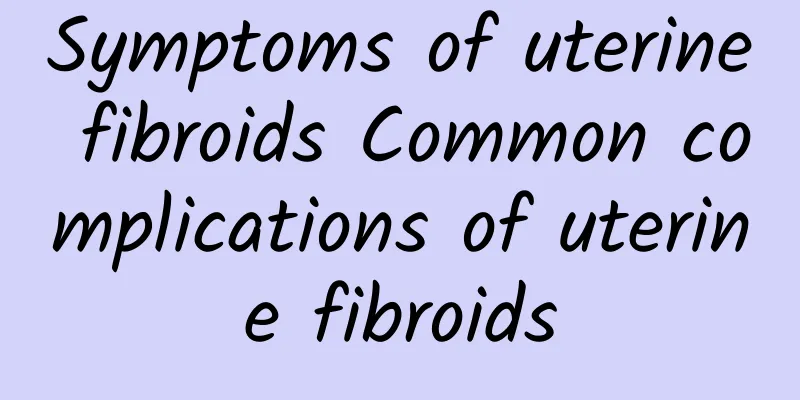What to eat after chemotherapy for invasive hydatidiform mole to recover quickly

|
After chemotherapy for invasive hydatidiform mole, choosing a high-protein, high-vitamin, and dietary fiber-rich diet can promote recovery, including lean meat, eggs, fresh vegetables and fruits, etc.; at the same time, avoiding irritating foods, quitting smoking and drinking, and maintaining a balanced diet structure can help the body better repair and rebuild the immune system. 1) High-quality protein helps tissue repair After chemotherapy, the body needs to repair damaged tissues, and the intake of high-quality protein is particularly important. You can choose protein-rich ingredients, such as lean meat (beef, chicken breast), fish (such as salmon, cod), and soy products (tofu, soybeans). These foods not only provide the body with enough protein, but also contain essential amino acids, which help accelerate cell repair. In addition, ensuring 2-3 servings of high-quality protein intake every day is a basic requirement. 2) Eat more foods rich in vitamins and antioxidants During chemotherapy, the body will produce a large number of free radicals, which can easily damage healthy cells. Therefore, appropriate intake of vitamins (such as vitamins A, C, and E) can help remove free radicals and reduce the body's inflammation level. It is recommended to eat more fruits rich in vitamin C, such as oranges, lemons, and kiwis, carrots and pumpkins rich in vitamin A, and nuts rich in vitamin E (especially almonds and walnuts). Fresh green leafy vegetables (spinach, kale) are also very helpful for detoxification. 3) Dietary fiber regulates digestive function Chemotherapy may cause indigestion or intestinal disorders, so foods rich in dietary fiber are particularly important. For example, oats, potatoes (sweet potatoes, purple potatoes), whole grains (whole wheat bread, brown rice), etc. can help keep the intestines unobstructed and avoid constipation. At the same time, these foods can stabilize blood sugar, provide lasting energy, and help the body's metabolism recover. 4) Maintain adequate hydration Chemotherapy may cause dehydration and electrolyte imbalance, so adequate water intake is essential. It is recommended to drink 1500-2000 ml of water per day. You can also drink coconut water, light salt water, etc. rich in electrolytes. On this basis, warm bone soup or clear chicken soup can help restore energy and increase appetite. 5) Taboo foods and dietary precautions Try to avoid spicy, greasy food, and cold or irritating food, as these foods will not only increase the burden on the stomach, but may also cause discomfort after surgery. It is also important to quit smoking and drinking, as they weaken the immune function and delay the body's recovery. Avoid overeating and it is recommended to eat small and frequent meals to facilitate nutrient absorption. Scientific diet conditioning can effectively promote the body's recovery after chemotherapy for invasive hydatidiform mole. At the same time, it should be combined with moderate exercise and adequate rest. If there are special physical reactions or severe loss of appetite, please consult a doctor or nutritionist in time to adjust the diet plan to meet your needs. Diet is the basis of recovery, but more importantly, it is to take care of physical and mental health in all aspects. |
<<: How to treat pelvic effusion during pregnancy
>>: Can uterine fibroids eat blood? What should people with anemia eat?
Recommend
What causes bleeding in stool before menstruation?
What causes bleeding in stool before menstruation...
Drinking water boiled with basil stems can cause miscarriage
Drinking water boiled with perilla stems generall...
12 kinds of fruits recommended to eat after miscarriage
After a miscarriage, you can supplement vitamins ...
What causes dysmenorrhea?
Recently, the number of women suffering from dysm...
What should women eat to improve ovarian function? Doctors recommend two types of food
Only when the ovaries function well can women hav...
The best treatment for adenomyosis
Adenomyosis is a common gynecological disease amo...
Successful weight loss depends on sleep, don’t miss this golden time! 5 tips to help you fall asleep
Go to bed before 12 o'clock at night Before y...
How long after a miscarriage can you wash your hair?
How long after abortion can I wash my hair? Many ...
Common medication misunderstandings in patients with hyperprolactinemia
Hyperprolactinemia is a common disease, and Chine...
Why do symptoms of amenorrhea occur?
Amenorrhea is a manifestation of abnormal menstru...
What should I eat for amenorrhea?
The occurrence of amenorrhea may be considered a ...
Why do women develop uterine fibroids? What can I eat to eliminate uterine fibroids the fastest?
Why do women develop uterine fibroids? Uterine fi...
What are the main diagnostic methods for dysmenorrhea?
Dysmenorrhea is a common disease in life, and man...
Double the fat burning effect! Interval training + light fasting
The exercise is short and effective, and has long...
To create a six-pack, first train your rectus abdominis! Fitness coach teaches 3 abdominal crunch exercises, beginners can quickly get started
Girls want to exercise, but they are afraid of be...









